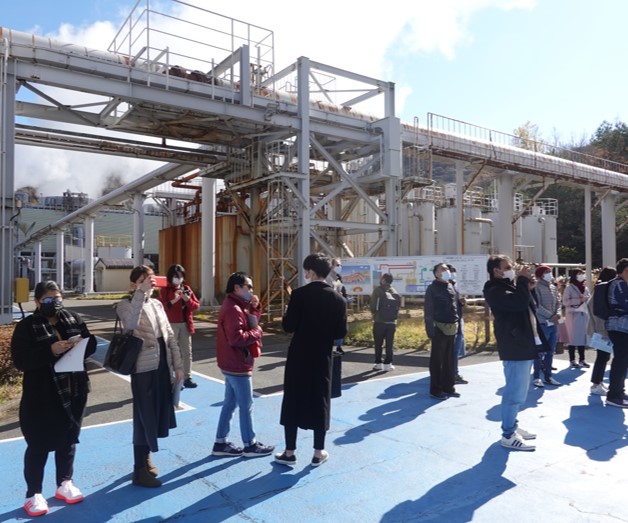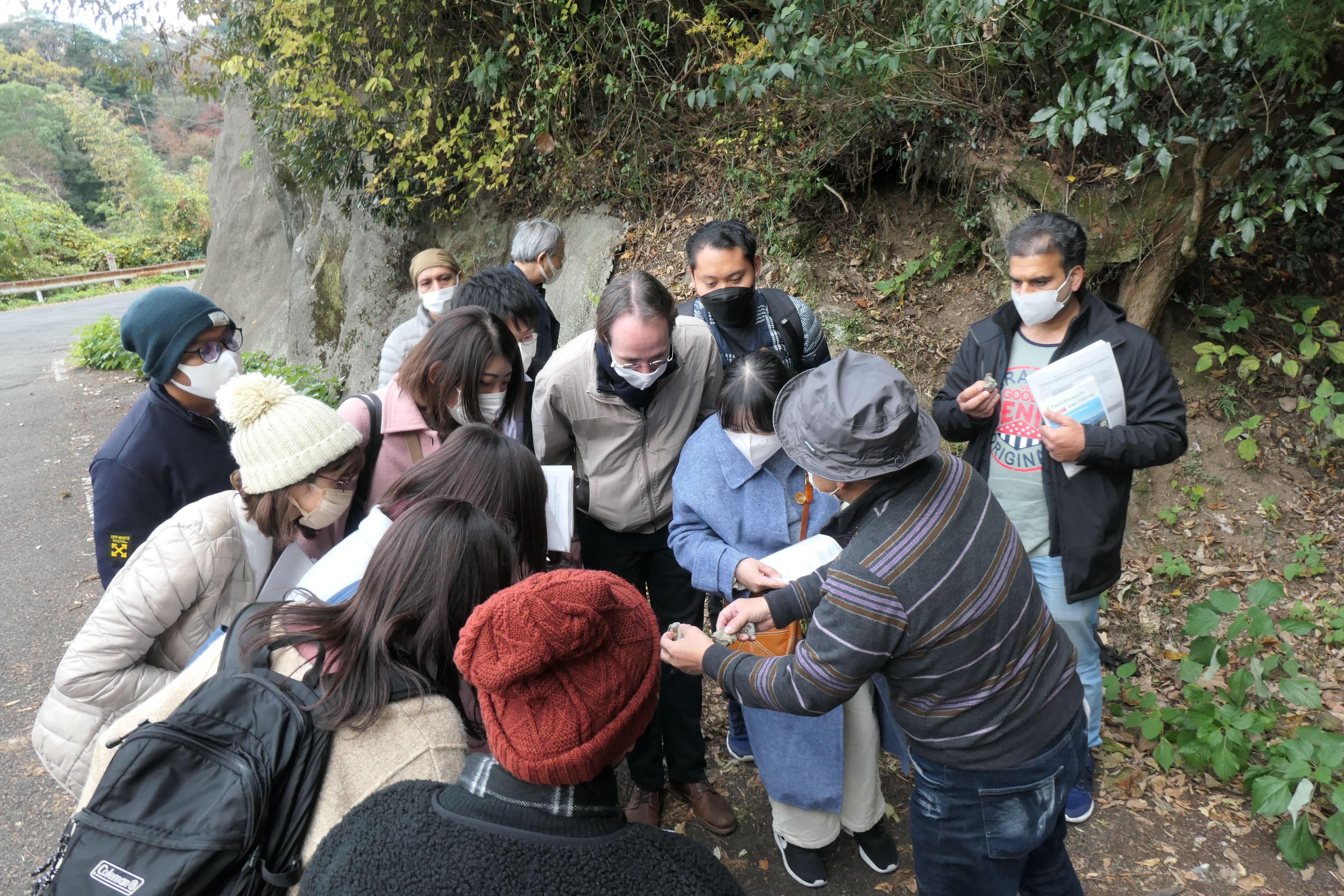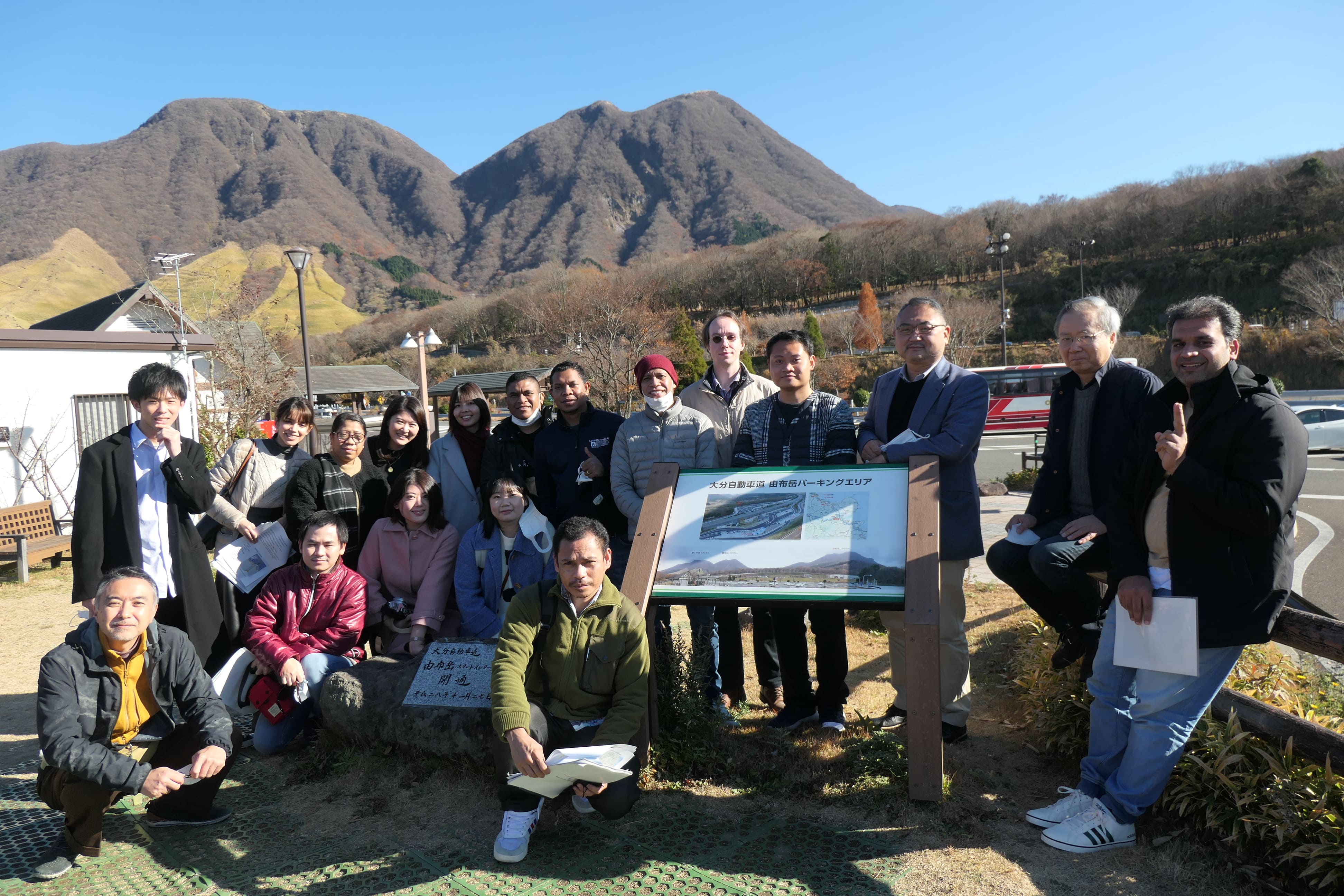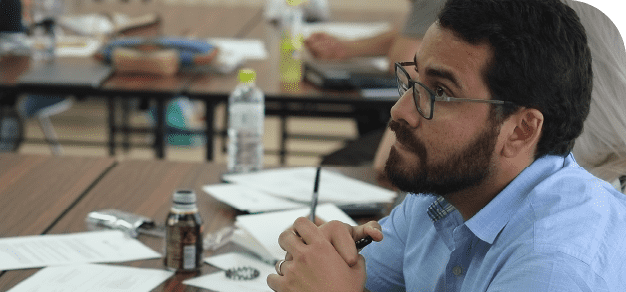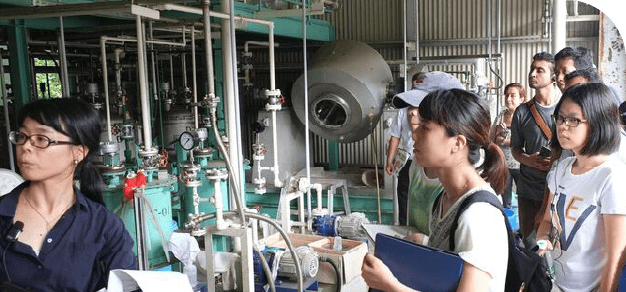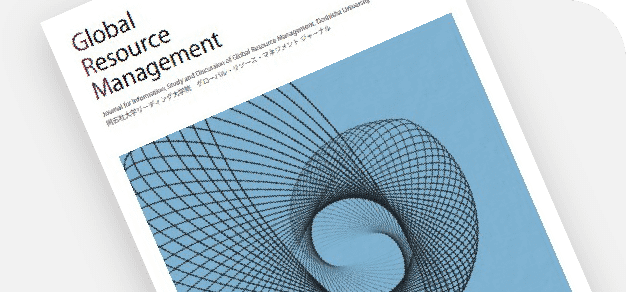GRM Students’ Reports
GRM Program Completion Report
Graduate School of Science and Engineering BABAKARKHAIL Habibullah
2023/01/24
The GRM Program provides me with the mindset and confidence to work on a multi-faceted topic by providing me with multi-dimensional knowledge, developing personal skills, and allowing me to experience and participate in solving SDG topics through participating in several group work practices and field trips. The knowledge I have acquired from the program can be structured based on the three parts, such as attending several lectures, practicing in group works, and participating in field trips.
In the lectures and seminars, I learned the designated information in the fields of natural science and social science. The different lectures designated for the topics related to the sustainable development goals provide us with brief background information and understanding of the current problems in specific topics as well as how to improve capacity development and research skills.
The GRM program provided me with the chance to take the PROG test, which is an important test for general skills that gives me a precise understanding of how to enhance them for my current research and future career. The test result provided me with an understanding of the strong points, such as teamwork and management, as well as the weak points, such as forming strategies to solve problems. Fortunately, through engaging in numerous group work activities in GRM, some of the weak aspects have been enhanced, particularly problem-solving techniques.
From the capacity development course, I learned how to plan and finance the research, which was one of the important topics in the research development course and a turning point for my PhD study. As a self-financed student with no budget, I have learned how to find funds to support the research. Fortunately, I prepared a research proposal, and with the support and guidance of my supervisor, I was able to apply for the Doshisha University SPRING program research grant, and I was chosen to receive the grant to support my doctoral research. This provided me with several opportunities, such as being able to participate in two conferences in the United States and Paris and present my research papers there. During the conference, I met several scholars in my research field who provided me with valuable feedback and suggestions for improving my research. Aside from taking two online courses, full stack web development and self-driving car engineering, which provided me with important and fundamental knowledge for my doctoral research, attending conferences and taking the course enabled me to enhance and publish my academic research papers as well as my PhD research.
The second part was to conduct the group work practice to implement the knowledge and solve the problem in the real world, as well as to learn how to work in a multicultural environment with people from various backgrounds. Each semester, students conduct a group work practice activity that involves choosing a real-world problem in a different part of the world to explore, identifying and understanding the causes of the problem, analyzing it, and providing a solution to the problem.
In this all-five-group work activity, one of the best learning methods is creating a lifetime memory, which is not possible without field observations, meetings with the local government, and specialists in the field. I have learned how to conduct research while collaborating with a team, especially in terms of how to collect information, analyze information, identify problems, and form a strategy to solve a problem. It was the best experience and gave me a deep understanding of how to improve my research abilities, which really impacted my research development skills for my doctoral research as well as my future career. The benefit of group work practice was learning how to work in a diverse environment, how to manage a team, collaborate with others, and share information, all of which are really important for my current research as well as working and living in a foreign country.
In group work practice IV, we have learned and experienced such a deep multi-disciplinary understanding of the geothermal power plant that it would not have been possible without the field trip that the GRM program facilitated for the group members to Oita prefecture. I have learned how geothermal energy is providing electricity services by visiting Hatchobaru geothermal power plant and using Onsen to boost tourism, which plays an important role in shaping the economy of Beppu city. On the other hand, I discovered that, despite high power capability, the barriers to establishing a geothermal power plant in Mt. Lawu, Indonesia, are connected to several social problems in the community. The main reasons for the opposition are cultural in nature, since they think Mt. Lawu is a sacred site that should not be disturbed. The religious aspect, which is the presence of temples, is a source of disagreement among community members, and exploration and exploitation are considered to endanger cultural assets. Last but not least, there is a lack of understanding regarding geothermal energy because people are concerned that fluids may overflow and pollute the land. I have learned how the social aspect is important and how to raise awareness and educate people about geothermal energy.
From group work practices II and III, I could learn the two most important aspects of a project: the economic and social aspects. The question that sparks this discussion is how the government will respond if it is dissatisfied with the proposed method in terms of the imbalance in the economy and if it believes it will impose a tax burden on the users or the community. Second, as I have learned, social aspects could be a big barrier to introducing new technology; therefore, I have prepared a questionnaire survey to better understand the willingness to use the proposed method and what the user’s opinion, needs, and concerns are so that I can think about and redesign the proposed method based on that. When implementing the proposed method, it could be accepted by different stockholders.
My main research topic is to propose a novel distance-based tax charging system in the era of zero-emission vehicles as an alternative to replace current gasoline tax collection systems, as well as to provide an architectural software platform that enables connected automated vehicles to reserve a grid-based tax charging system to replace current highway toll collection systems. Participating in the GRM program helped me to maintain my association with a science and engineering perspective while providing me with enough knowledge and experience to take a multifaceted approach to my research. The GRM program's knowledge and experiences gave me a new perspective on multidimensional thinking, and my doctoral dissertation may be found in the multifaceted approach, such as the technical, economic, and social aspects of the proposed system, in my research.
From group work practice IV, I have learned about the economic development and feasibility study of projects. I also learned data analysis in the quantitative research course. These two courses' knowledge has helped me think from an economic standpoint in my research, such as considering the proposed method for the two different stakeholders: users, or the community, and government. Since introducing a new technology or method raises concerns about the benefits or losses to users and the government. We investigated the tax burden on users and society, as well as the annual gasoline tax revenue to the government, and compared the proposed method to the current method. The proposed method is capable of providing sustainability and guaranteeing long-term alternative gasoline tax revenue to the government while guaranteeing the tax burden on society and car ownership such that the annual gasoline tax differences for conventional vehicles, hybrids, and electric vehicles are almost the same.
I've learned that social aspects can be a major barrier to introducing new technology; thus, I've created a questionnaire survey to better understand the users' willingness to use the proposed method as well as their opinions, needs, and concerns, so that I can redesign the proposed method based on them and make it more acceptable to different stockholders when it's implemented. It is very important to understand that the new technology or system we are introducing will be applicable in society and will have the willingness to be used by users. Since I learned how to conduct a questionnaire survey and analyze data in qualitative and quantitative research courses, I have used this knowledge to create a questionnaire survey to investigate the social aspect of the proposed method. I have investigated the literature review and prepared a hypothesis to check the willingness of users and community acceptance of the proposed method. We successfully reviewed the literature, developed a hypothesis, and prepared the questionnaire for use in either a physical or online research survey. Unfortunately, because of COVID-19 restrictions, we were unable to conduct the survey and publish the results; thus, it will be considered in future research.
To summarize, the GRM program strengthens my ability to improve my personal development and research skills in a way that enhances and supports my current doctoral research and teaches me how to work in a diverse environment, which will be beneficial to my future career. I have expanded my knowledge and understanding of problem solving from a multi-dimensional perspective.
